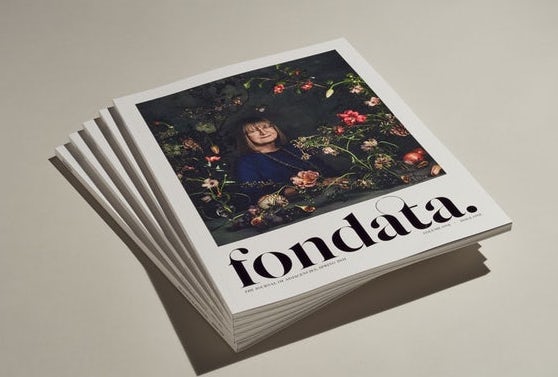Alan Aboud is the creative director of Fine and Rare’s new FONDATA publication (which features Member Jancis Robinson MW on the cover in its first edition). In this Meet the Friend interview, Amanda Barnes finds out how the fine wine market has changed during the pandemic, the concept of a ‘journal of adjacencies’ and why moving from Black Tower to Meursault has been great for his palate but not his wallet.
How did you get into wine?
Apart from seeing the obligatory Black Tower, or Mateus Rosé at our family table at Sunday lunch, I was very late to true exposure to wine. Appreciation came later, quite possibly not until the beginning of my encounters with Fine and Rare. For many years I yearned to take wine courses to learn about the finer details of the world. That never happened.
My real wine induction came when my working relationship with Fine and Rare started, and most notably with CEO Patrick O’Connor. Patrick literally took me under his wing and led me to experience wines I could never have imagined or ordered before then. Trips to Paris, Chianti, Bordeaux, Beaune and Hong Kong all became inextricably linked with new wine discoveries.
In a four-year period, my palate has changed immeasurably. Meursault has become a real favourite, not good for the bank account.
Working with the fine wine world at Fine and Rare, what are the major fine wine trends that you’ve noticed in the past 5 years?
Even a prestige, relatively balanced market like fine wine has seen dynamic change over the past few years. The pandemic has sped up the digitalisation of the sector tremendously. Clients are increasingly comfortable managing their cellars using apps and tools, and market data means everyone can access real-time information about the value of a portfolio. As a result, the sector has become more democratic – in terms of geography, demographic, and indeed what we consider the very fundamentals of ‘fine wine’ to be. That said, we also believe the pandemic has powerfully amplified the emphasis on the analogue. Time spent with loved ones, the indulgence and comfort of time itself. Conviviality is back – what’s the point in saving that precious bottle for a rainy day when there have been so many dark times in recent memory? Honouring that ability to connect in-person, and the appreciation of those precious moments, has a lot more of a focal point.
There’s been a remarkable influx of new consumers into fine wine. We have a collective and heightened thirst for knowledge and an appreciation of the skill, craft, and intense dedication that is the inherent soul of fine wine. The humanity of producers has come to the fore – their struggles, successes, joys. This is partly fuelled, I think, by an increased awareness of the climate emergency, and the precarious position in which so many winemakers find themselves. Ultimately, without living things, ecosystems, we don’t have incredible wine. That would be a very grey world to exist within.
The pandemic has accelerated change within fine wine, in a similar way it has other sectors. Clients are embracing digital and the delight it can bring in terms of ease, information sharing, and ultimately procurement of these wonderful wines. And now we can gather together once more, the shared appreciation for not just the bottles themselves but being in community with others is breathing genuine delight into the market.
Tell us about FONDATA.
We like to describe FONDATA as a journal of adjacencies. It’s a dynamic, living platform that celebrates the universe we all thrive in as appreciators of fine wine and spirits. The protagonist is not the wine itself; we won’t tell our community what we’re drinking or how it tastes. This is about those moments fine wine and spirits can unlock. The meandering conversations with captivating people, the midnight musings with dear friends. FONDATA is about ideas, hospitality, warmth. It’s the contiguous spaces our clients inhabit: travel, watches, couture, collecting in general and design. And it’s about celebrating the richness they contribute to our unique worlds, and how they bring us together. We bring this into tangible being through the voices of remarkable contributors and within the pages of the bi-annual journal.
What is further in the pipeline for Fine & Rare and FONDATA? I believe you are planning podcasts, playlists and books?
Just like our audience, FONDATA is ever-evolving. We want to be a place people come to for those moments of luxury, escapism, delight. It’s about a continuation of those most intrinsic conversations and an expansion of ideas. We like to talk about fast ‘lean in’ and slow ‘lean back’ content – FONDATA is unequivocally the latter. The platform is essentially an invitation to recline, soften and envelop oneself in this glorious universe. We’re most certainly exploring how we can best curate this vision which started in print. An audio space, moving image and collaborative products for retail are all in the pipeline.

